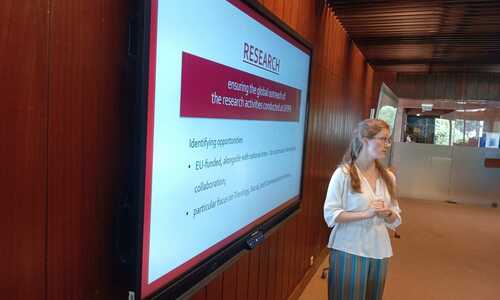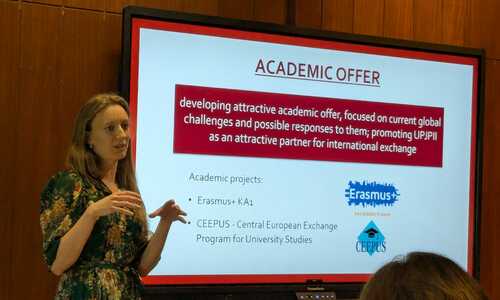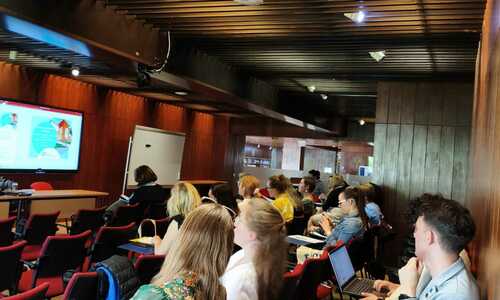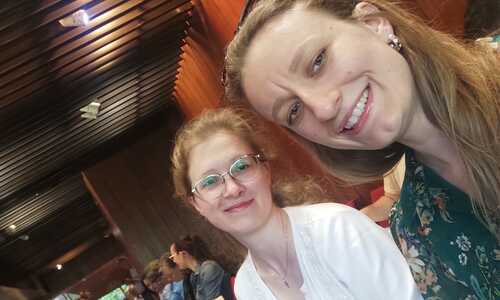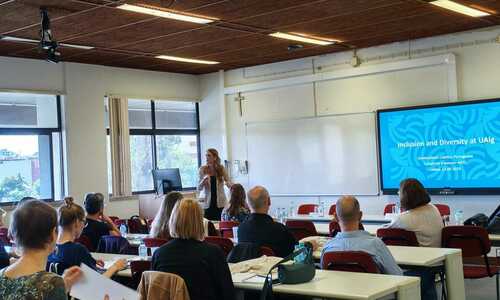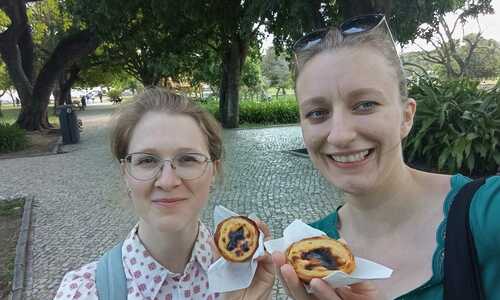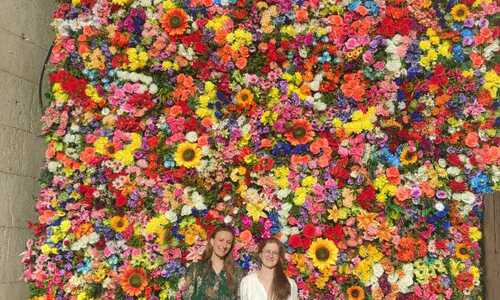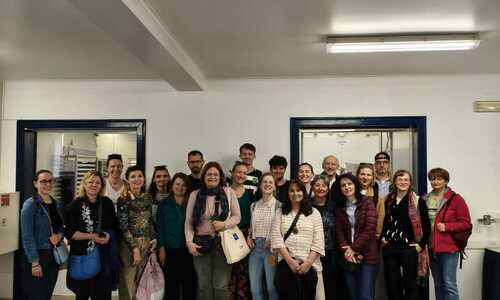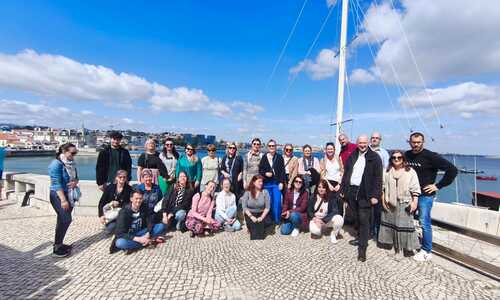Galleries
‘Cheira bem, cheira a Lisboa’ - International Cooperation Office team at training in Lisbon
On May 12-16, 2025 Urszula Leszynska and Klaudia Miśkowicz from the International Cooperation Office participated in a training (BIP) entitled. 'Internationalization at Home as a Key to Inclusion and Diversity’ at the Catholic University of Portugal. Below is their account of the trip.
‘Cheira bem, cheira a Lisboa’ means ‘Smell beautiful, smell Lisbon’. This motto perfectly sums up the few days of training trip we had the opportunity to participate in as part of the Erasmus+ (Staff Mobility, STT) programme from 12-16 May 2025. The event was organised by the Catholic University of Portugal based in Lisbon.
Diversity and the challenges faced by universities operating in a space of increasing numbers of foreign students and academic staff over the past two decades was chosen as the theme of the training. Lisbon is the ideal place to discuss diversity – it is a city of many cultures and therefore of many smells. The sweet aroma of Portuguese pastéis de nata, the enticing smell of African spices, the scent of the excitement of tourists from different parts of the world, and above all, the freshness of laundry hung over the narrow streets.
During the training, we had the opportunity to present the internationalisation strategy implemented by UPJPII, as well as to listen to presentations by participants from a number of European universities. In addition to lectures on the concepts of diversity, identity and inclusion and the role of “internationalisation at home”, we participated in workshops on intercultural competences. The training was also a space for discussions about the impact of internationalisation on the ways in which universities function, including the work of administration and academic staff. The multicultural world is a space for acquiring new skills, such as tolerance towards other ways of communication, and discovering one's own identity when dealing with the Other.
A great value for us was the opportunity to network with other participants. The exchange of experiences and the sharing of challenges broadened our point of view and inspired us to look for new solutions to the problems we face at work.
Also, the cultural programme of the training was an opportunity to understand that diversity as a great value. Visits to Lisbon, Estoril and Cascais revealed to us a mosaic of multinational and multicultural history, which from a variety of tiles (called azulejos in Portuguese) forms a coherent picture in which we - 21st century Europeans - can see ourselves and still learn that diversity has been part of our identity for centuries.
Klaudia Miśkowicz
Urszula Leszyńska

